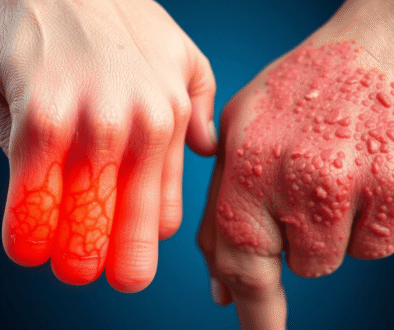Recognizing Symptoms of Dehydration: What Our Bodies Tell Us
Early symptoms of dehydration can be easy to ignore. Yet missing them could put our health at risk. Dehydration affects energy, thinking, and even heart and kidney function. Knowing what to watch for can help us stay sharp, safe, and hydrated.
What is Dehydration?
Dehydration happens when our body loses more water than it takes in. This can come from sweating, peeing, diarrhea, vomiting, or just not drinking enough. Adults can get dehydrated quickly during illness, while active, or on hot days. People over 65, those on certain medicines, or with chronic health issues are at greater risk than most.
Common Symptoms of Dehydration
Dry mouth, thirst, and dark urine are some of the clearest symptoms of dehydration. These aren’t just annoyances—they are red flags. Our mouth may feel sticky. Skin might turn dry or less elastic. Fewer bathroom trips than usual? That’s another clue. Sometimes our lips even crack, and our skin loses its glow.
We should keep in mind that dehydration is more than feeling thirsty. It’s a collection of changes our body uses to signal for help. Sources like the Cleveland Clinic remind us these symptoms get worse over time if we ignore them.
Fatigue and Dizziness
Being tired, dizzy, or a bit confused can all signal moderate to severe dehydration. When we don’t have enough water, our blood pressure drops. Less blood reaches our brain, so we feel weak or lightheaded. These symptoms warrant action. Fainting or confusion can follow if we wait too long.
Headache and Muscle Cramps
Ever notice a pounding head after time in the sun or after missing water? Dehydration often triggers headaches since our brain tissue contracts from fluid loss. Muscles can cramp, too. This happens because losing water means losing minerals and salt, which muscles need to work. We might feel twitching or charley horses, especially during or after exercise.
 Photo by Kaboompics.com
Photo by Kaboompics.com
Early Signs to Watch For
Catching dehydration early makes a difference. Here’s what to watch for:
- Feeling more thirsty than usual
- Dryness in the mouth or on the tongue
- Not needing to pee as much
- Urine that’s darker than pale yellow
Notice a change in how often we need to go, or the color is amber? That could mean our body needs more water fast. The Mayo Clinic has a detailed rundown of the earliest symptoms for all ages.
Serious Complications of Untreated Dehydration
Unchecked dehydration can spiral. If our body keeps losing water, things can get serious:
- Heatstroke: Especially during hot weather or exercise
- Kidney problems: Including kidney stones or even kidney failure
- Seizures: Our brain and nerves need the right balance of minerals
- Hypovolemic shock: Blood volume drops so low that organs can’t get what they need
Severe dehydration is nothing to brush off. Research from the NCBI shows untreated cases can become life-threatening.
How to Prevent and Respond to Dehydration Symptoms
We can prevent symptoms of dehydration with a few habits:
- Drink water often, even if not thirsty
- Track urine color: pale yellow is the target
- Limit alcohol and caffeine—they add to fluid loss
- Dress for the weather and rest when it’s hot
- Replace fluids lost during exercise or illness quickly
If someone shows dizziness, confusion, or can’t stop vomiting, it’s time to get medical help—fast. Prompt care can make a big difference.
Stay Ahead of Dehydration
Recognizing the symptoms of dehydration keeps us safer and healthier. From thirst and dark pee to confusion and cramps, our bodies give clear warnings. By acting early, drinking often, and listening to these signs, we cut our risk of more serious problems. Staying hydrated means staying ready for life’s demands.


